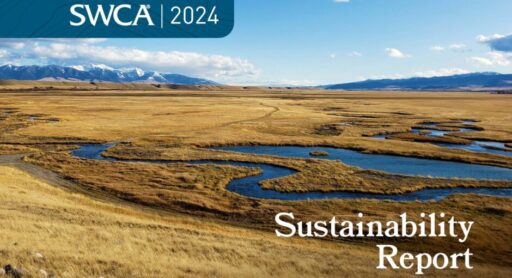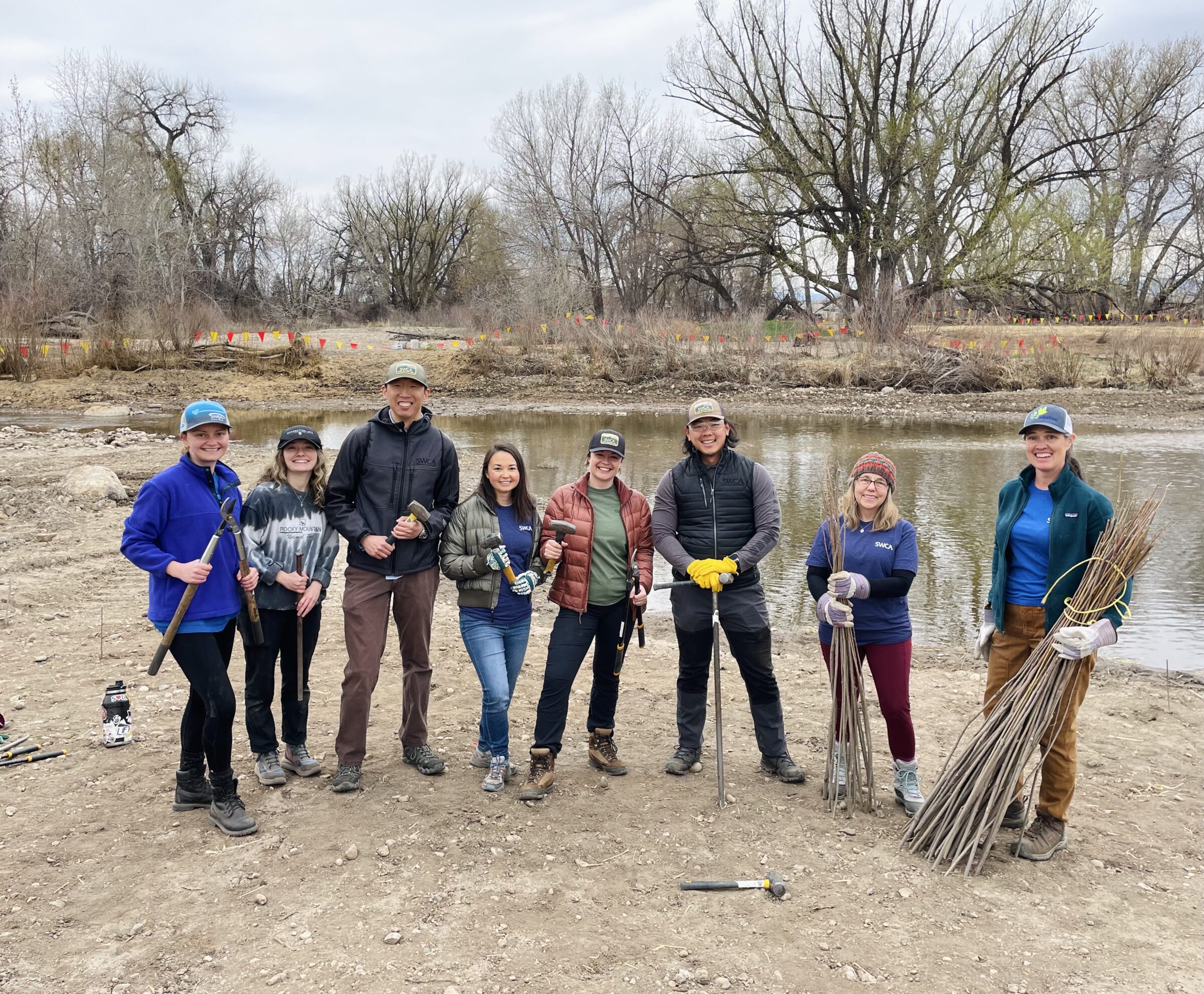2025
Comparably’s Best Company Outlook
* Providing engineering services in these locations through SWCA Environmental Consulting & Engineering, Inc., an affiliate of SWCA.

From the experts we hire, to the clients we partner with, our greatest opportunity for success lies in our ability to bring the best team together for every project.
That’s why:

At SWCA, sustainability means balancing humanity’s social, economic, and environmental needs to provide a healthy planet for future generations.

SWCA employs smart, talented, problem-solvers dedicated to our purpose of preserving natural and cultural resources for tomorrow while enabling projects that benefit people today.

At SWCA, you’re not just an employee. You’re an owner. Everyone you work with has a stake in your success, so your hard work pays off – for the clients, for the company, and for your retirement goals.
Final Proposed CEQ NEPA Regulations
The much-anticipated Council on Environmental Quality (CEQ) Implementing Regulations Phase 1 revisions have been posted to the Federal Register.
Amanda has more than 26 years of NEPA experience and has managed or contributed to over 100 EISs and EAs to date. She has worked on NEPA projects with 9 different lead federal agencies and more than 10 cooperating agencies and leads large-scale NEPA interdisciplinary teams. Through her project experience she has direct involvement and knowledge of how the NEPA process interfaces with other processes such as Section 106, the Wilderness Act, the Endangered Species Act, and Section 404 processes. Amanda has provided third-party review of NEPA documents for numerous clients including agencies and private companies. In addition to a project specific knowledge of the NEPA process, Amanda serves as SWCA’s primary instructor and class developer to provide comprehensive NEPA training to private, state, and federal agencies.

Matt Petersen is the National Environmental Policy Act (NEPA) Technical Director for SWCA. Matt has 31 years of experience as a resource specialist and has managed or provided NEPA oversight for over 30 large-scale environmental impact statements (EISs), including projects in Arizona, Alaska, Colorado, Idaho, New Hampshire, Utah, Vermont, Texas, New Mexico, California, and Wyoming. This NEPA experience includes work with most major federal agencies and encompasses resource management plans (RMPs), ski areas expansions, fire management plans, stream restoration, mining, oil and gas, pipelines, transmission lines, wind farms, airports, and power plants. Matt has taught custom NEPA seminars for the Bureau of Land Management (BLM), U.S. Forest Service (USFS), U.S. Department of Transportation Maritime Administration, and the Federal Aviation Administration (FAA). Matt has developed and routinely teaches several open-enrollment NEPA courses to industry professionals, lawyers, and agency staffs. In addition, Matt is a regular instructor on NEPA impact analysis and third-party consulting for the BLM National Training Center (NTC). Matt recently developed the BLM National Training Center courses “NEPA Analysis for EAs” and “Kick-Start Your RMP,” both of which Matt has taken on the road to BLM field offices throughout the continental Unites States and Alaska. Technical expertise includes aquatic habitat impact assessment, mitigation, and restoration; hydrological modeling and analysis; and wetland delineation, mapping, and impact analysis. Matt is also experienced in the use and application of analytical models for quantitatively assessing natural resources impacts through the NEPA process.



The much-anticipated Council on Environmental Quality (CEQ) Implementing Regulations Phase 1 revisions have been posted to the Federal Register. Not surprisingly, this is looking like déjà vu all over again. These Phase 1 revisions, rather than being a complete return to the original CEQ regulations, are a selective revision of key changes enacted by the Trump administration in 2020 that, as CEQ states, “…pose significant near-term interpretation or implementation challenges for Federal agencies.” In general, these revisions return substantial deference to the federal agency in terms of defining project needs, alternatives, and National Environmental Policy Act (NEPA) process requirements. A quick summary of these revisions and what they mean to real-world NEPA is provided below:
If you have questions or need more information, please reach out.